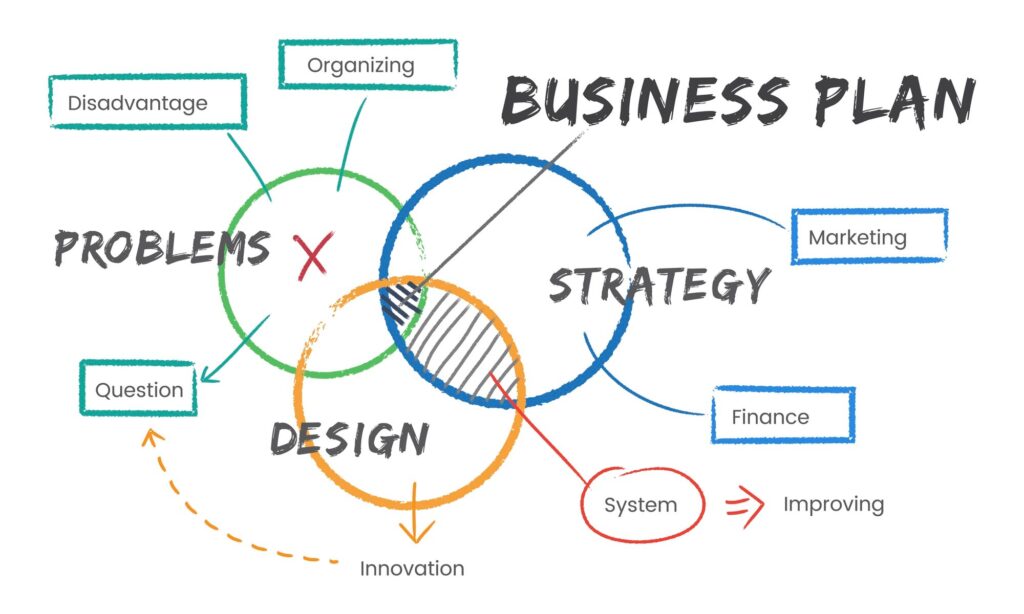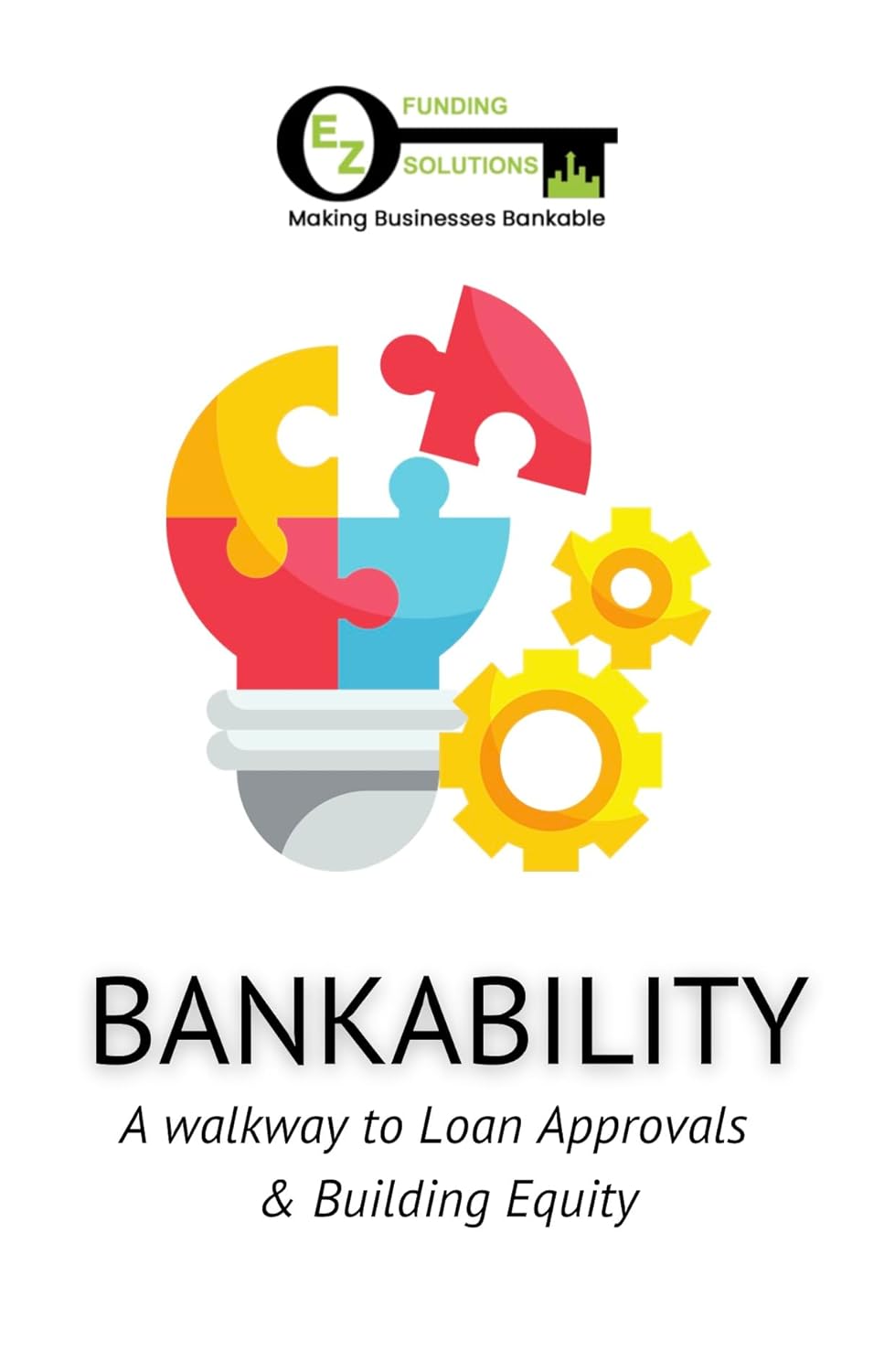

“In my experience as a Former Banker, I’ve consistently seen the impact of a well-crafted business plan in securing SBA loans. This document is more than just paperwork; it’s a strategic guide that bridges your vision with the lender’s expectations.”
Parag Nevatia, Founder & CEO

A comprehensive business plan effectively showcases a business’s feasibility, scalability, bankability and financial potential, which are some of the most essential factors for banks and lenders that provide SBA loans. It should articulate your business strategy, delve into a detailed market analysis, and present well-thought-out financial projections and assumptions. Click the video on the right for more details.

This approach transforms your business plan into a compelling narrative. It’s not just about presenting facts and figures; it’s about telling the story of your business in a way that resonates with lenders. For both startups and expanding businesses, aligning your plan with SBA loan requirements significantly boosts your chances of loan approval. This not only aids in securing the necessary funds but also lays the groundwork for your business’s long-term growth and success.

Let us help set the right tone for your or your borrower’s business from the outset, with our tailored Loan or Growth packages. Our aim is to ensure your business plan not only meets but exceeds the expectations of your potential lenders or partners.
Remember, a robust business plan is your blueprint for success and a critical tool for securing SBA financing. As an Award-Winning Consultant and Counselor, my key advice is to approach your business plan as a living document, one that evolves with your business and keeps you on track towards your goals.
As an experienced former SBA Lender, I’ve seen firsthand business owners struggle how to write a business plan and to understand how crucial a well-structured business plan is for securing an SBA loan. Your plan should not just outline your business idea but also demonstrate its feasibility and potential for success.


The first step in securing an SBA loan is understanding the specific requirements. This includes SBA eligibility, good credit score, demonstrating business viability, and meeting the SBA’s size standards. It’s crucial to ensure that your business falls within the scope of what the SBA considers “small” under the NAICS code.
A successful business plan must include a comprehensive market analysis, detailed financial projections, and a clear outline of your business model. These components showcase your understanding of the market and your strategy for navigating it successfully.


To tailor your business plan for SBA loan approval, focus on highlighting how your business or vision aligns with the business model and SBA loan requirements. This includes showing your business plan’s potential for job creation, community impact, building cash flow, building equity, financial sustainability and ultimately leading to profitability or bankability.

For small business owners, it’s essential to regularly update your business plan to reflect any market or operational changes. This shows lenders that you’re proactive and committed to your business’s success. Work with professional business finance advisors to avoid any pitfalls. Here are some financing tips for you to get started.
Professionals and Advisors such as Bankers, CPAs and Attorneys play a critical role in guiding businesses through different stages of the business cycle. By partnering with EZFS, they can keep their clients well informed about latest SBA policies and regulations, whether general or specifically detailed. As a result of that, EZFS can help their clients with enhanced services such as business plans, business modeling & loan projections.
Partner with us to assist your clients with all they need to know.
Refer your clients to get started with our Business Finance Advisory Service.
As a seasoned Business Finance Advisory Company, we understand the importance of presenting a compelling case to banks, investors, or business partners. The key, to this, is a well-crafted business plan. This document isn’t just a formality; but a critical tool that articulates the potential for growth, viability, and bankability of your business or idea/concept.
Our business plans are meticulously composed to meet the exact standards of decision-makers. We cover all essential aspects including products and services, operations, revenue models, competitive advantages, and market strategies. Additionally, we delve into the leadership and staffing structure, realistic financial projections, clear growth plans, thoroughly analyzed industry outlook, and therefore, providing a complete picture of your business landscape.

Disclaimer: For all packages 50% fee is due upfront and 50% is due at the time of delivering the business plan. By clicking the buy now button, you are paying 50% (1st installment) of the fee, and authorizing EZFS to charge the remaining 50% (2nd installment) at the time of delivery.
* Actual timeframe will vary case to case. We’ll work for a definitive ETA after our initial discussion.
Download our free business plan template to help you get started in drafting your business plan. Utilize our sample business plan and tools to ensure your plan meets professional standards and aligns with SBA requirements.
Conventional loans typically do not require a business plan as they have a different kind of logic. These loans are typically based on rent rolls which are based on tenants in the building. SBA loans require business plans, typically when it is a start up business or when cash flow is insufficient in an acquisition deal. This is when a Business Plan shows all the data and logic that is needed to justify the loan request.
A business plan should speak the language of logic. It should talk about the what, why, how, when, market, and strengths and weaknesses amongst other things. It should talk about the management, their expertise, roles of staff, sales, controlling costs and showing cash flow to support the loan.
A good business plan should demonstrate a game plan to run a business successfully. It should also demonstrate strategies needed for both scaling and controlling costs, in order to remain profitable. That profitability number can vary depending on what the management’s vision is. If they are looking to raise future debt, then it is important to know how much cash flow banks would want to see. Also, if historically the sellers tax returns don’t show enough cash flow, then the business plan will be needed, if you need a loan from a bank, if not you will get a decline most likely.
A full business plan should demonstrate the business details, show the need for the loan, team, history, future, scalability, model, projections, competition, swot analysis, industry analysis and guarantor information amongst a few other points. Watch this video for details https://youtu.be/2Zm4s6Mu-K0 or schedule a 30-min free call with us to discuss.
Usually, SBA lenders require a business plan, especially when buying a business and the seller’s tax returns don’t show enough cash flow to support the debt, that’s when the bank may require a business plan to demonstrate how the new management will scale up and show more cash flow to support the debt. Also, when starting a brand new business, the business plan is almost always required to show the concept and everything else that the bank needs to see.
I write about business financing, business plans and business sustainability, my book “Bankability” is out now.
– Parag Nevatia

Stay in the loop with everything you need to know.
We offer flexible options, which you can adapt to the different needs of each project.
Understanding SBA loans options is key to choosing the right one for your business.
Each type of SBA loan caters to different business needs and scenarios, making it important to carefully consider your specific requirements and goals when choosing an SBA loan.Need help understanding which loan type is suitable for your business.
The most popular type, 7(a) loans offer flexibility for a range of business purposes, from working capital to equipment purchase. They’re ideal for businesses looking for a versatile loan option.
These are geared towards major purchases, like real estate or heavy equipment. 504 loans are perfect for businesses looking to make long-term investments in their growth.
As the name suggests, microloans are smaller, maxing out at $50,000. They’re great for startups or small businesses needing a modest capital boost for things like inventory or supplies.
If you need funds quickly, Express loans offer a faster approval process. They’re suitable for businesses that need timely access to capital.
In times of crisis, such as natural disasters, disaster loans provide critical financial support to help businesses recover and rebuild.
For businesses involved in international trade, export loans offer financing options to help them compete in the global market.